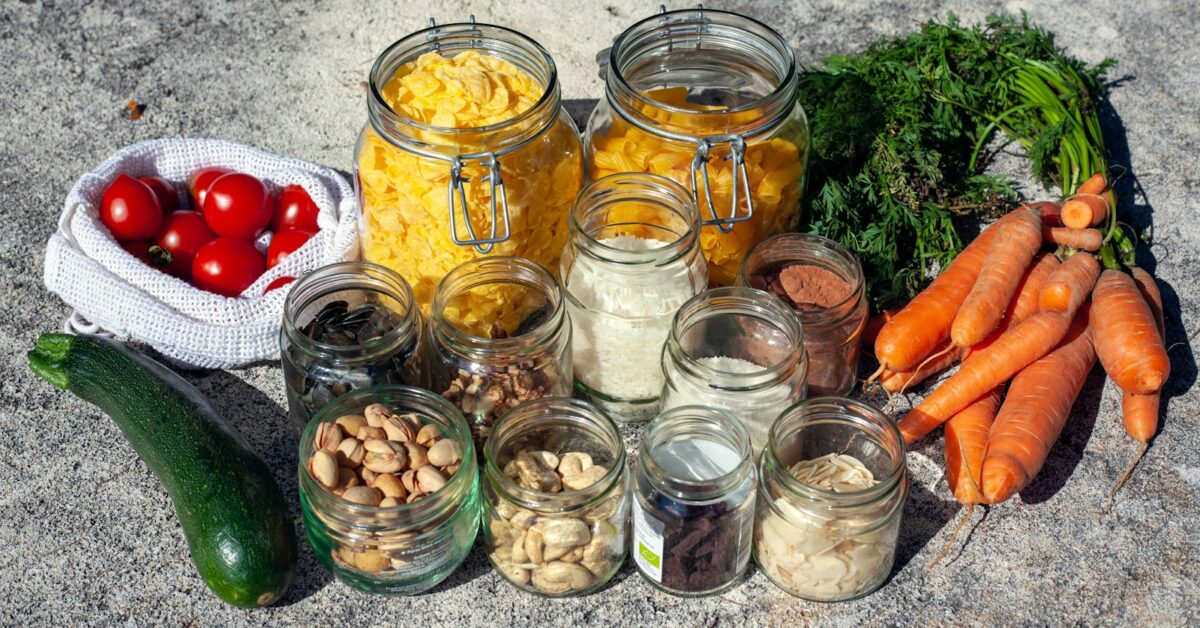Vitamin Supplements for Vegans
Veganism is a lifestyle choice that has gained significant popularity in recent years. With a focus on plant-based foods, vegans exclude all animal products from their diet, including meat, dairy, eggs, and even honey. While a well-planned vegan diet can provide all the necessary nutrients, there are certain vitamins that may be more challenging to obtain solely from plant-based sources. In such cases, vitamin supplements can be a valuable addition to a vegan’s diet to ensure optimal health and well-being.
The Importance of Vitamin B12
Vitamin B12 is one of the most critical nutrients for vegans to consider. It plays a crucial role in the formation of red blood cells, DNA synthesis, and proper neurological function. Unfortunately, vitamin B12 is primarily found in animal-based foods, making it difficult for vegans to obtain adequate amounts solely through their diet. Studies have shown that up to 86% of vegans may be deficient in vitamin B12, highlighting the need for supplementation.
There are several options for vegans to obtain vitamin B12 through supplements:
- Cyanocobalamin: This is the most common form of vitamin B12 found in supplements. It is a synthetic form that is easily converted into the active forms of vitamin B12 in the body.
- Methylcobalamin: This is the active form of vitamin B12 and is often preferred by some vegans. It is more expensive than cyanocobalamin but may be better absorbed by the body.
- Fortified Foods: Some plant-based foods, such as breakfast cereals, plant-based milks, and nutritional yeast, are fortified with vitamin B12. However, it is essential to check the labels to ensure adequate amounts are being consumed.
Ensuring Sufficient Vitamin D Levels
Vitamin D is another nutrient that can be challenging for vegans to obtain naturally. It is primarily synthesized in the body through exposure to sunlight, but this process can be limited for those living in areas with limited sunlight or during the winter months. Vitamin D is crucial for bone health, immune function, and overall well-being.
Vegans can consider the following options to ensure sufficient vitamin D levels:
- Sunlight Exposure: Spending time outdoors in the sun can help the body produce vitamin D naturally. Aim for 10-30 minutes of sun exposure on the face, arms, and legs a few times a week.
- Vitamin D2 Supplements: Vitamin D2, also known as ergocalciferol, is derived from plant sources and is suitable for vegans. It is commonly found in supplement form and can help maintain optimal vitamin D levels.
- Vitamin D3 Supplements: Vitamin D3, or cholecalciferol, is typically derived from animal sources. However, some vegan-friendly vitamin D3 supplements are now available, sourced from lichen or mushrooms exposed to UV light.
Omega-3 Fatty Acids for Vegans
Omega-3 fatty acids are essential for heart health, brain function, and reducing inflammation in the body. While fish and fish oil are commonly associated with omega-3s, vegans can obtain these beneficial fats from plant-based sources such as flaxseeds, chia seeds, and walnuts. However, the conversion of plant-based omega-3s, known as alpha-linolenic acid (ALA), into the active forms, eicosapentaenoic acid (EPA) and docosahexaenoic acid (DHA), is limited in the body.
Vegans can consider the following options to ensure sufficient omega-3 fatty acids:
- Algal Oil Supplements: Algae-based omega-3 supplements are an excellent source of EPA and DHA for vegans. These supplements are derived from microalgae and provide a sustainable and vegan-friendly alternative to fish oil.
- Flaxseed Oil: Flaxseed oil is rich in ALA and can be a valuable addition to a vegan’s diet. However, it is important to note that the conversion of ALA to EPA and DHA is limited, so algal oil supplements may still be necessary to ensure optimal omega-3 levels.
Other Considerations
While vitamin B12, vitamin D, and omega-3 fatty acids are the primary nutrients of concern for vegans, it is essential to ensure a well-rounded and varied diet to meet all nutritional needs. Some additional considerations for vegans include:
- Iron: Plant-based sources of iron include legumes, tofu, spinach, and fortified cereals. Pairing these foods with vitamin C-rich sources, such as citrus fruits or bell peppers, can enhance iron absorption.
- Calcium: Calcium can be obtained from plant-based sources such as kale, broccoli, fortified plant-based milks, and tofu. It is important to ensure adequate calcium intake, especially for vegans who avoid dairy products.
- Zinc: Plant-based sources of zinc include legumes, whole grains, nuts, and seeds. Soaking or sprouting these foods can enhance zinc absorption.
Vitamin supplements can be a valuable tool for vegans to ensure optimal nutrient intake and prevent deficiencies. However, it is always recommended to consult with a healthcare professional or registered dietitian before starting any new supplements to determine individual needs and appropriate dosages.
